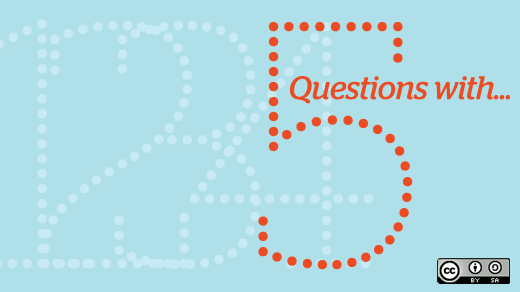Traditional media companies are in big trouble. You may have noticed. You know who else has noticed? David Pakman, currently a partner at the prestigious Venrock venture capital firm. You may also know David as the former CEO of eMusic—a fairly disruptive media company in its own right. David has over 300,000 Twitter followers and regularly blogs here about the “undoing of big media.”
Today, we ask him five questions about where the future of music intersects with the open source way.
1. One of the beautiful things about the open source software revolution is it lowered the barrier to entry for developers who wanted to create useful software. Meaning, without going to fancy schools or working for big Silicon Valley tech companies, people in any part of the world with any level of experience could contribute, and if their code was good, they were in. Is the barrier to entry for artists trying to make it in the music industry getting lower too? It sure doesn't feel like it sometimes.
I think the barrier to entry to write or make music has always been pretty low. Provided you can learn how to play an instrument, you can write songs. The encroachment of technology into every facet of music making has lowered this barrier even further. An entire album can be recorded at great quality in a basement with a Mac and some bundled software. DJ equipment isn't even needed anymore --- you can do it all on your Mac.
The challenges have always been around marketing and distribution, and the internet changed all that. Anyone can launch a site or a myspace page and offer downloads of their music. In 2008, more than 38,000 new records were released. This was the most ever.
Becoming commercially successful by selling music or touring has never been harder, and that is because fewer people are buying music and consumers have more entertainment choices than ever before. So while it's easier to make music, it's harder to make a living making music.
2. A friend of mine has a saying: “revolutions are never started by landowners." Yet in the technology industry, some of the oldest "landowners," companies like IBM, embraced the open source software movement early, giving up some control in the process, and they have greatly benefited from doing so. Which "landowners" in the music world are most progressive in terms of putting control back in the hands of the creators and the consumers of music?
That answer is easy—it's the independent record labels. They have always been the most progressive, the most inventive, and the most willing to take risks. They have no choice since they never controlled distribution or radio and had to find ways to get their artists exposed. The indies were the first to support MP3s, streaming services, P2P, and ad-supported services.
3. And who has it all wrong?
Well, based on the track record of the recorded music industry as a whole, I would say they have not succeeded in figuring out a way to survive in the digital world.
4. In a blog post a few months ago, you unleashed the following nugget of genius: “When free is a few clicks away, convenience rules.” Apple's gift to the music industry was that they made paying for downloads easier and safer than downloading for free. Do you see other good examples of music industry companies focusing on creating convenience rather than asserting control?
I think Amazon has done a convincing job of putting convenience first. Not too many people mention the fact that they offer used CDs on the very same page as a new CD and are happy to sell the user either. That is putting convenience before control. I also think VEVO has built a pretty nice service for watching music videos and, over time, will expand themselves to be on all devices that matter.
5. One of the key elements of the open source way is collaboration. When it comes to the art of making music, collaboration is fundamental to how great music is made. But on the business side of the music industry, collaboration seems to work a lot less well. In the software industry, we use the word "coopetition" a lot to describe companies that are both collaborators and competitors. I hate that word, but it does capture the idea. Are there some places in the music industry where a rising tide might lift all ships if there was a little more coopetition and a little less competition?
It's not always cooperation vs competition. Just the idea of cooperation evaporated from the lexicon of the music industry about a decade ago. From the moment digital distribution appeared to be real, the industry shied away from partnering with technology companies and startups alike, instead believing they could do everything themselves and attempting to control digital distribution the way they had physical.
I think the industry lost sight of the fact that it was once built by entrepreneurs and missed an opportunity to again work with those pioneering the future. More cooperation is needed. In the digital world, only ecosystems survive.
--
David Pakman is a Partner at Venrock, a premier venture capital firm with offices in Palo Alto, New York, Cambridge, MA, and Israel. Previously, Pakman was the CEO of eMusic, the world’s leading digital retailer of independent music, second only to iTunes in number of downloads sold. After buying eMusic from Vivendi Universal, in the three years that Pakman ran it, he grew the business by more than 850%, from $7M in revenues to more than $68M.
Prior to joining eMusic, Pakman was Co-Founder and President of Business Development and Public Policy at Myplay, Inc., the company he co-founded in 1999 in Redwood City, CA that introduced the “digital music locker” and pioneered the locker category. Before Myplay, he was Vice President at N2K Entertainment, which created the first digital music download service. He also was the co-creator of Apple Computer’s Music Group. Pakman is a graduate of and a member of the Board of Overseers at University of Pennsylvania’s School of Engineering and Applied Science with a degree in Computer Science Engineering and is an avid musician and songwriter.






5 Comments